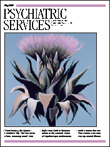The Best Day the Worst Day: Life With Jane Kenyon
Both Jane Kenyon and Donald Hall are authors and poets of some renown. Although Donald was 19 years Jane's senior, they were married for 23 years. The Best Day the Worst Day is their story, written with unremitting tenderness by Donald Hall, ten years after Jane's 1995 death from leukemia at age 47. Hall is also the author of Without, a book of poems about his life with Jane.
The book begins with Jane's death and funeral day with a clipped, sort of dissociated style. The tone relaxes in the following chapters, as Hall reels back to his and Jane's first meeting more than two decades before (she was a student in his writing class). The book proceeds in a back-and-forth rhythm—one chapter tracing their marriage and life together, the next chapter chronicling the final 15 months of their life eclipsed by the diagnosis of acute lymphocytic leukemia, then back again to Hall's delight in the years of Jane's developing writing career. Throughout it all is a profound statement of the care both Kenyon and Hall gave to this marriage of writers.
Hall writes in an intensely personal style. He transparently describes his reactions to and struggles with Jane's diagnosis and illness. His bewilderment is palpable—when he'd first contemplated marriage with Jane, he had worked out that life expectancy charts predicted that Jane would outlive him by 25 years. Furthermore, shortly before Jane's diagnosis of leukemia, Hall himself is diagnosed with colon cancer metastatic to liver (although he remains disease-free even now). These factors made Jane's imminent death all the more difficult for Hall to imagine.
Although the book is not long, it is filled with absorbing details—of Kenyon's and Hall's work and lives, of their beloved pets, of family (both of their mothers died during the final 15 months of Jane's life after her diagnosis of leukemia), of their thoughts and fears (with excerpts from Jane's journal); of the medical realities of leukemia diagnosis, treatment, side effects, and bone marrow transplant; and of their high hopes and profound disappointment. Hall shares brief stories about both his and Kenyon's writing careers and occasional excerpts from their poems or stories.
The book ends with a recounting of Jane's final 11 days, when the couple learns that treatment has failed and that death is imminent. There follows a poignant description of their preparation for Jane's death—described in Hall's heartbreaking prose.
Jane's struggle with lifelong depression and occasional mania is a brief focus in a chapter entitled "The Soul's Bliss and Suffering." There is a description of the dilemma when the leukemia condition and treatments render Jane unable to use medicines for her mood symptoms and when the treatments cause psychiatric symptoms. Hall's recounting of all the medical and psychiatric details are authentic and accurate.
The story, though, is primarily one of steadfast love, human pain and suffering, and the pathos of grief and loss. Anyone who has ever loved someone or lost someone will appreciate its depth and beautiful writing.



